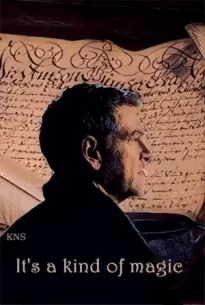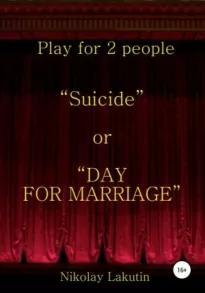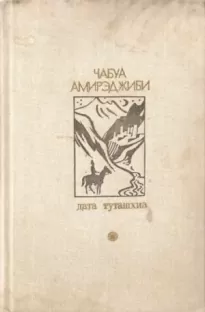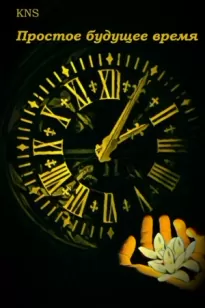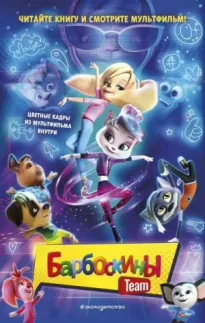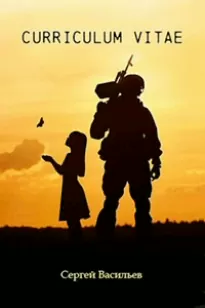Позитивные изменения. Том 3, № 3 (2023). Positive changes. Volume 3, Issue 3 (2023)
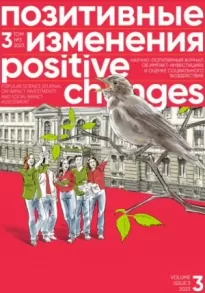
- Автор: Редакция журнала «Позитивные изменения»
- Жанр: Научная литература / Газеты и журналы
- Дата выхода: 2023
Читать книгу "Позитивные изменения. Том 3, № 3 (2023). Positive changes. Volume 3, Issue 3 (2023)"
ANO RHYTHM
Youth Robotics and Innovative Technologies Club in Murom.
https://33ampera.ru/
This is a project that involves young people in engineering creative work and offers a platform free from professional stereotypes. In these sessions, participants gain fundamental knowledge and skills in electric circuitry, electronics, programming, as well as exact sciences such as physics, geometry, and mathematics. Supported by professional mentors’ consultations, technical skill trials, and field trips to enterprises, teenagers are empowered to bring their ideas and projects to life and make informed career decisions, choosing from a diverse range of professions like engineering, design, programming, architecture, entrepreneurship, or construction.
PROBLEM ADDRESSED
Murom, the third largest industrial city in Vladimir Region, rose to fame in the Soviet era for its city-defining enterprises specializing in high-precision measurement instruments and electronics for the military industry, as well as military and civilian equipment. At present, these enterprises are facing an acute shortage of skilled workers due to the transition to new equipment. They require versatile technical specialists, proficient in both the design of technical devices and their software components.
ANO RHYTHM sees its mission in supporting children and teenagers who exhibit an interest in scientific and technical creative work. By introducing them to the latest technologies at a young age, we can contribute to our city’s growth by supplying it with a fresh influx of talent and technical expertise.
At the same time, our project serves as a valuable resource for children’s career orientation, which will play a pivotal role in shaping their future professions. More than 70 % of the respondents in recent studies by HH.ru and Skypro Online University expressed dissatisfaction with their current job positions. Additionally, almost 90 % of schoolchildren surveyed in the “Ticket to the Future” project run by the Russian Ministry of Education have yet to determine their career paths and are uncertain about where to seek guidance. By addressing this issue in a small industrial city, our project plays a vital role in providing comprehensive career guidance to children and teenagers keenly interested in technical work.
METHODS USED TO ADDRESS THE PROBLEM
Methods of work:
1. Technical skill trials, in which children have the opportunity to explore in practice various engineering disciplines such as robotics, electronics, soldering, programming, modeling, and engineering graphics.
2. Career guidance course, which focuses on helping children connect with their own interests and aspirations. It comprises three main components: “Know Yourself,” where children gain insights into their own preferences and interests, “Explore Professions,” which explains the factors influencing the popularity and demand for specific careers, and “Make Informed Choices,” guiding them to make mature decisions that align with their own interests and goals.
3. Vocational exploration tours, conducted with specially trained students who understand how machines and processes function. These tours are hosted by specialists from various enterprises.
4. Mass events and festivals promoting technical creative work (At the end of the academic year, we organize exhibitions showcasing the educational projects created by the children. We invite specialists from different enterprises to provide feedback and words of encouragement).
FUNDS RAISED IN 2022
In 2022, our team received funding from various sources, including a regional subsidy of 150,000 rubles to establish a career guidance program, a grant of 1.2 million rubles for the club’s development from the Reach for Change, and another grant of 50,000 rubles from Impact Hub Moscow.
Continuing our success in 2023, we received a major grant of 1.1 million rubles from the Presidential Fund for Cultural Initiatives to set up the First Interregional Robotics Festival of Folk Crafts (http://festival_robototehniki.tilda.ws/).
Furthermore, we also won the Second Presidential Grants Foundation’s Competition in 2023 with our project “33Ampera Career Guidance Education Course for Technically Gifted Children and Teenagers in Murom (Stage Three),” securing an award of 2.3 million rubles.
ACCOMPLISHMENTS AND AWARDS
Winners of Reach for Change Competition, incubator participants (2021).
Winners of the Impact Hub Moscow #90DaysChallenge incubator for social start-ups (2022).
3rd place in the semifinals of the “Razumeetsya” Non-profit Management Championship (2022).
WHAT WAS DONE LAST YEAR
During 2022, we made significant progress in reviewing and optimizing our programs. The least effective areas that did not provide practical benefits to the children were removed. Additionally, we established productive collaborations with the folk arts and crafts community in Murom. This effort culminated in the remarkable project of the First Interregional Robotics Festival of Folk Crafts, where each participating group was challenged to create a robot craftsman or a robotic system capable of producing traditional regional products.
DIRECT RESULTS FOR 2022
Our club continues to serve a considerable number of children and teenagers, with around 120–150 participants annually studying in 10 different areas. We established 7 subsidized training groups for 56 young individuals as part of the 33Ampera project.
Furthermore, we have been actively involved in organizing mass events, including The 21st Century Skills career guidance games for schoolchildren, game development quizzes, robot soccer competitions at city celebrations, and highly informative tours to various enterprises. Over the course of one year, our team successfully set up 56 events, collectively impacting and enriching the lives of over 500 children. Some of these events were executed as part of grant projects, while others were introduced solely to present novel and beneficial activities for the kids in our club and the wider Murom community.
SOCIAL EFFECTS ACHIEVED IN 2022
Probably the best way to talk about the social effects of our operations is through the beneficiaries’ stories:[166]
1. Sergey’s mother, a prominent doctor in our town, sought our assistance in evaluating her son’s abilities. She noticed that Sergey would spend his days at his computer, writing programs instead of playing games. Since Sergey’s family was comprised entirely of biologists, his mother was unsure if he had a talent for programming. Thus, we embarked on a deep and productive journey with one of our most gifted students.
Sergey is a reserved child who has difficulty connecting with others. By working closely with his mother, we successfully navigated the child through his teenage crisis, during which he considered quitting programming altogether, and helped him apply for the school Olympics. Many evenings were spent talking with his mother about the challenges he faced in other interest groups, which he would withdraw from after a few months. Our approach involved refraining from any pressure and gradually guiding him towards functional programming and then into object-oriented programming classes.
After 18 months of personalized lessons, Sergey received an invitation to study at a prestigious private physics and mathematics school in Moscow as a successful participant in the All-Russian Programming Olympics. Even after the move, his mother still contacts us from time to time, asking to keep a spot in our schedule for Sergey, as she believes our guidance played a crucial role in steering him towards his true calling.
2. Rustam’s mother had taken him to several engineering hobby clubs before she discovered us. Due to his developmental peculiarities, they struggled to find a suitable environment for him. “Rustam kept interfering with the other kids’ activities, so we were asked to leave again and again. Yet I felt that Rustam had an aptitude for exact sciences and programming, so I never stopped looking for teachers for him,” his mother says.
As with many special children, socialization was the top priority in working with Rustam. When he came to us at the age of eight, he would rather cuddle with everyone and play hide-and-seek for hours. We looked long and hard for ways to motivate the boy to learn. Gently and tactfully, we would guide him towards those interests that could become the basis of his future professional career.
After two years of combined efforts from our team and his mother, Rustam became the absolute champion in the regional Programming Olympics. While his peculiarities did not go away completely, the latest summer camp session at our club made it clear that Rustam is now ready to become an integral part of the teenage community. Delighted with the transformation, his mother credits us for support in making a significant difference in her son’s life. The boy is eager to perceive knowledge despite distracting signals, and he has become more hard-working and more constrained in his emotions.
3. Children often come to our club by chance. Alexey is an eighth-grader whose mom brought him by the hand and said, “He doesn’t want to study, he’s not interested in anything, maybe you can do something about him.”
Here’s what Alexey himself tells about his experience: “Attending regular school has not been enjoyable for me in a long time. I often found myself asking, ‘Why learn this? Where would I ever use it?’ When I came to RHYTHM, I was offered a few trial classes. After that, I decided to enroll in the course on Blender 3D modeling. Blender is a versatile tool for working with 3D graphics, animation, even creating characters for computer games. Recently I participated in the ROBOART Interregional Open Festival of Scientific and Technical Creativity, getting the second place in 3D modeling discipline.”
Alexey has also taken a great interest in our electronics courses. He attends the club four times a week and is eager to continue his studies. He is set on entering a radio engineering college after completing the 9th grade.
SOCIAL AND ECONOMIC IMPACT
At present, our country’s industry is facing a critical shortage of skilled workforce. Assisting factories and enterprises in cultivating talent involves engaging gifted and interested children in technical creative work, thereby motivating them to pursue further education in essential fields. What sets our project apart is its ability not only to teach design, construction, and programming of devices of varying complexities but also to guide children from school to a vocational school and further to an enterprise.
FINANCIAL SUSTAINABILITY MODEL
Class passes, grant funds, investors (city businesses interested in future workforce).
IMPACT ASSESSMENT METHODS
1. Subject matter skills acquired by children in the classroom.
We assess the children’s subject knowledge twice a year. At the start of the year, they either take a test or complete a practical assignment, such as soldering together a circuit board or coding a mathematical algorithm in a programming language. At the end of the year, the students complete their individual projects, all addressing specific practical tasks and tailored to the respective age groups. Some kids make a short track machine, while others tackle the challenge of building their own mini-CNC mill. We aim to ensure that the level of subject skills and knowledge in our groups remains at least 75 %.
2. Soft skills (communication skills, critical thinking, etc.)
Soft skills development is evaluated via questionnaires filled out by parents. Many parents link the improvement in their children’s diligence with participation in our classes (68 % of parents mentioned this skill). However, we also focus on fostering communication skills among the children. Since robotics and electronics involve teamwork, we encourage the kids to effectively communicate with each other and discuss the distribution of responsibilities and objectives within their projects.
Participating in competitions and Olympics also plays a significant role in honing their soft skills. 27 of our students showcased their talents in various events in 2022. 11 of them won various prizes and awards. Two children even made it to the regional level of the Russian National School Olympics in Computer Science.
3. Preparing kids to make career choices.
To measure our students’ preparation to making career choices, we observe the disciplines they choose for their Basic State Examinations or Universal State Examinations, and their enrollment decisions. Here we see a strong correlation between their performance and the duration of their attendance. For instance, currently 95 % of the kids who have been with us for more than 2 years opt for computer science or physics as their exam disciplines. However, our main goal is not just to guide our students towards engineering universities. What matters most to us is that after completing our courses, each child can clearly state their professional choices and identify what truly excites them about their chosen careers.
